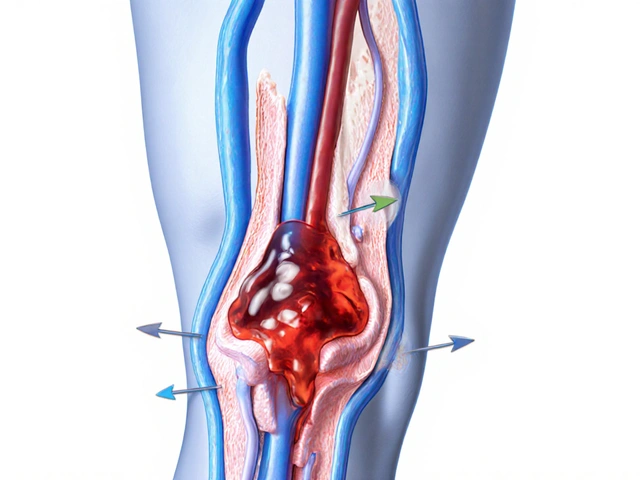Introduction to Conjugated Estrogens USP
Conjugated estrogens are a type of hormone therapy used to treat various symptoms and conditions related to menopause, such as hot flashes, vaginal dryness, and night sweats. They are also sometimes prescribed to prevent osteoporosis in postmenopausal women and to treat certain forms of cancer. Despite their benefits, conjugated estrogens can have some side effects, which can range from mild to severe. In this article, we will discuss some of the most common side effects of conjugated estrogens USP and how to manage them to ensure a comfortable experience while taking this medication.
1. Gastrointestinal Issues
One of the most common side effects of conjugated estrogens is gastrointestinal discomfort. This can include symptoms like nausea, bloating, and stomach cramps. To manage these symptoms, try taking your medication with food or a glass of milk to reduce stomach irritation. Additionally, avoid lying down immediately after taking the medication and drink plenty of water throughout the day to help with digestion. If these symptoms persist or worsen, consult your healthcare provider for further guidance.
2. Headaches and Migraines
Headaches and migraines are also common side effects of conjugated estrogens. To manage this, try to identify and avoid any triggers that may be causing your headaches, such as stress or lack of sleep. Additionally, practicing relaxation techniques, such as deep breathing exercises or meditation, can help alleviate headache pain. Over-the-counter pain relievers, such as acetaminophen or ibuprofen, can also be used to manage headaches, but be sure to follow the recommended dosage instructions and consult your healthcare provider if the headaches persist or worsen.
3. Breast Tenderness and Swelling
Conjugated estrogens can sometimes cause breast tenderness and swelling. To alleviate this discomfort, try wearing a supportive bra and avoiding caffeine, as it can worsen breast pain. Applying a warm or cold compress to the affected area can also provide relief. If the pain is severe or persistent, consult your healthcare provider for further evaluation and recommendations.
4. Mood Changes and Depression
Some individuals taking conjugated estrogens may experience mood changes or symptoms of depression. If you notice a significant change in your mood or feelings of sadness that persist, it is important to discuss this with your healthcare provider. They may recommend adjusting your medication dosage or exploring alternative treatment options. Additionally, engaging in regular physical activity, maintaining a healthy diet, and seeking support from friends, family, or a mental health professional can help manage mood changes and improve overall mental well-being.
5. Vaginal Discharge and Irritation
Vaginal discharge and irritation can occur as a side effect of conjugated estrogens. To manage this, maintain proper hygiene by keeping the genital area clean and dry, and avoid using harsh soaps or douches that can further irritate the area. Wearing breathable, cotton underwear can also help prevent discomfort. If the discharge or irritation becomes severe, consult your healthcare provider for further guidance and possible treatment options.
6. Weight Gain
Weight gain can sometimes occur as a side effect of conjugated estrogens. To manage this, it is important to maintain a healthy lifestyle through balanced nutrition and regular physical activity. Focus on consuming whole, nutrient-dense foods, such as fruits, vegetables, lean proteins, and whole grains, while limiting processed and high-calorie foods. Engaging in regular exercise can also help prevent weight gain and promote overall health. If the weight gain is significant or persistent, consult your healthcare provider for further evaluation and recommendations.
7. Leg Cramps and Swelling
Leg cramps and swelling can be a side effect of conjugated estrogens, particularly in the lower extremities. To manage this, elevate your legs whenever possible, and avoid sitting or standing in one position for prolonged periods. Regular physical activity, such as walking or stretching, can also help alleviate leg cramps and improve circulation. If the swelling becomes severe or is accompanied by other symptoms, such as chest pain or shortness of breath, consult your healthcare provider immediately, as these can be signs of a more serious condition.
In conclusion, while conjugated estrogens can be an effective treatment for various menopausal symptoms and conditions, it is essential to be aware of the potential side effects and how to manage them. Always consult your healthcare provider if you experience persistent or severe side effects while taking conjugated estrogens. They can provide guidance and recommendations to ensure that you have a comfortable and safe experience while using this medication.








17 Comments
ANTHONY MOORE May 13, 2023
I took these for a year after my hysterectomy. Nausea was brutal at first, but eating a banana before bed totally saved me. Also, avoid dairy if you're bloated-it's a game changer.
Nick Bercel May 14, 2023
Headaches?? I got migraines so bad I called 911... turns out it was the estrogen. Stopped cold turkey. No regrets.
Jose Lamont May 15, 2023
I get why people freak out about mood changes. I was crying over spilled coffee for three weeks straight. My therapist said it wasn't me-it was the hormones. Took me months to feel like myself again.
Wilona Funston May 16, 2023
Leg swelling is not normal. If you're experiencing pitting edema or unilateral swelling, get a D-dimer test ASAP. PE risk is real with estrogen therapy. I'm a nurse and I've seen too many cases where people dismissed it as 'just aging'.
Ben Finch May 17, 2023
Weight gain?? Bro. I gained 20lbs and thought I was just lazy. Turns out my estrogen levels were through the roof. Now I do HIIT 5x a week and eat like a caveman. No pills. No drama.
Naga Raju May 18, 2023
I was on this for 2 years. Breast tenderness was the worst. Switched to transdermal patch and boom-gone. Also, caffeine makes it worse. I quit coffee and my life improved 😌
Jason Kondrath May 19, 2023
This article reads like a pharmaceutical brochure. You didn't mention the increased risk of endometrial cancer without progestin. Or the fact that 30% of users discontinue due to side effects. This is barely surface-level.
Alex Hughes May 20, 2023
I've been on conjugated estrogens for over a decade now and honestly the biggest issue isn't the side effects it's the societal stigma around hormone therapy women are told to suffer in silence when they're just trying to live without hot flashes that feel like being set on fire in a sauna while wearing a wool coat
Hubert vélo May 21, 2023
You know what they don't tell you? Big Pharma knows these side effects are common. That's why they push the 'manage them' angle. Meanwhile, the real solution is to avoid synthetic hormones entirely. The FDA has known this since 1998. They just don't want you to know.
andrew garcia May 21, 2023
While I appreciate the practical advice, one must consider the epistemological foundations of hormone replacement therapy. Is symptom management truly healing, or merely masking systemic imbalance? The body, when given space and nutrients, often restores its own equilibrium-why do we default to pharmacological intervention as the first, not last, resort?
Kalidas Saha May 21, 2023
I had a 3-day migraine and then my boob exploded 🤯 I thought I was dying. Then I read the label. Now I'm on bioidenticals. Best decision ever. 🙌
Ruth Gopen May 22, 2023
I can't believe you didn't mention the increased risk of stroke and blood clots. I had a friend who lost her leg to a clot because she didn't know. This article is dangerously incomplete. You need to warn people. This isn't just 'mild side effects'-this is life-or-death.
Mohamed Aseem May 24, 2023
Lol you think this is bad? Try being a man on estrogen. My face melted. My voice broke. I cried every day. Now I'm on testosterone and my soul is back. This whole system is broken.
Jordan Corry May 25, 2023
STOP SUFFERING. You don't have to take this crap. I was in hell for 18 months. Then I found a functional doc. Did a hormone panel. Fixed my gut. Now I'm thriving without pills. You're not broken-you're just out of balance. Go deeper.
Dan Gut May 27, 2023
The article cites two dubious sources. The first link is a 2018 paper with a sample size of 12. The second is from Bentham Science, a known predatory publisher. This is not evidence-based medicine. It's marketing disguised as education.
Marcus Strömberg May 28, 2023
I'm sorry, but if you're having 'mood changes' or 'breast tenderness', maybe you shouldn't be on estrogen at all. This isn't a spa treatment. It's a powerful drug. If you can't handle the side effects, you're not a good candidate. Stop blaming the medicine and take responsibility.
Matt R. May 29, 2023
This is why America is falling apart. We're medicating away natural biological processes instead of teaching women to embrace aging. Back in my day, we drank black cohosh and walked barefoot in the garden. Now? Pills for everything. Pathetic.